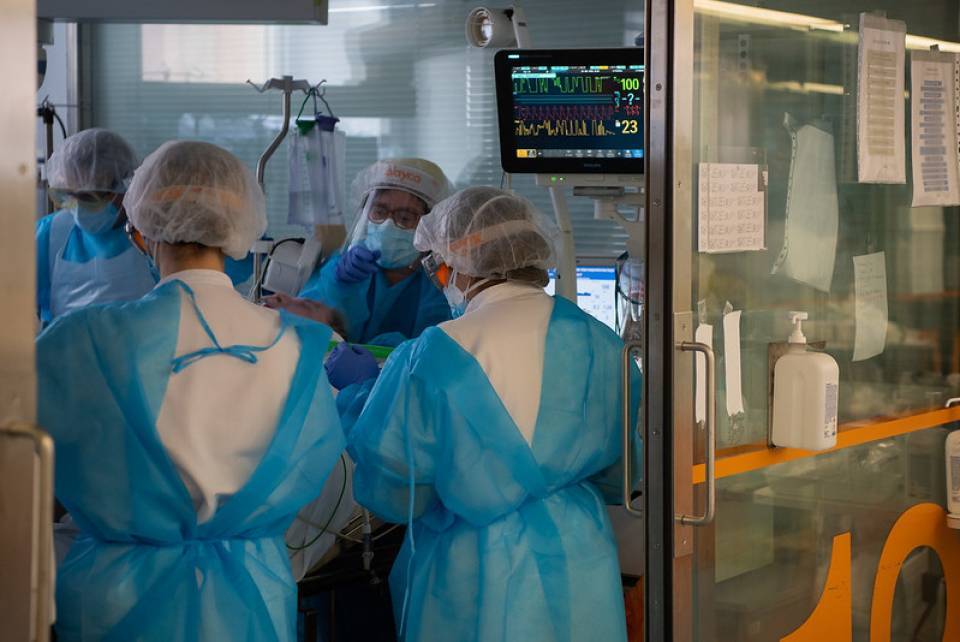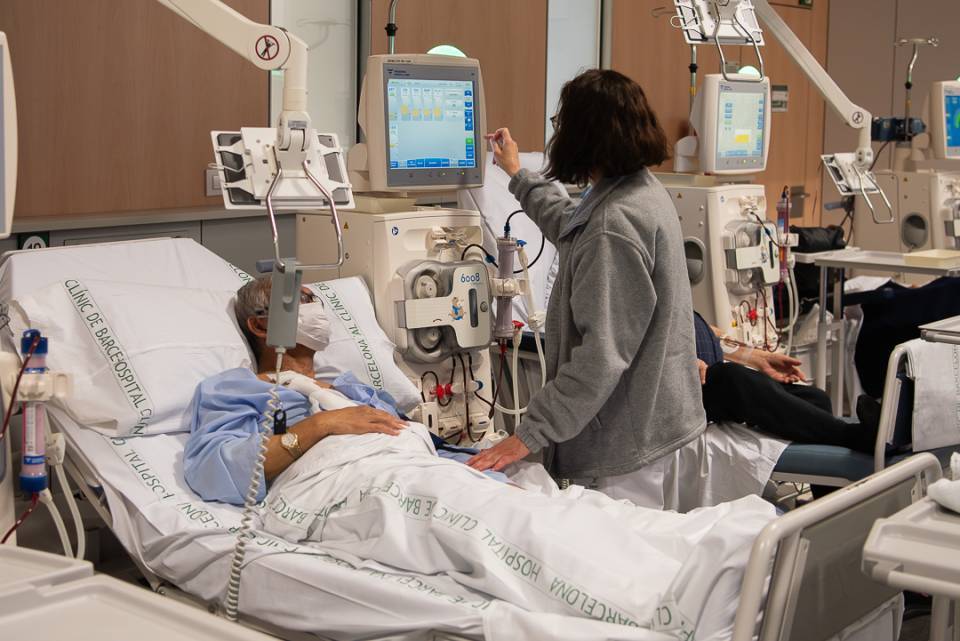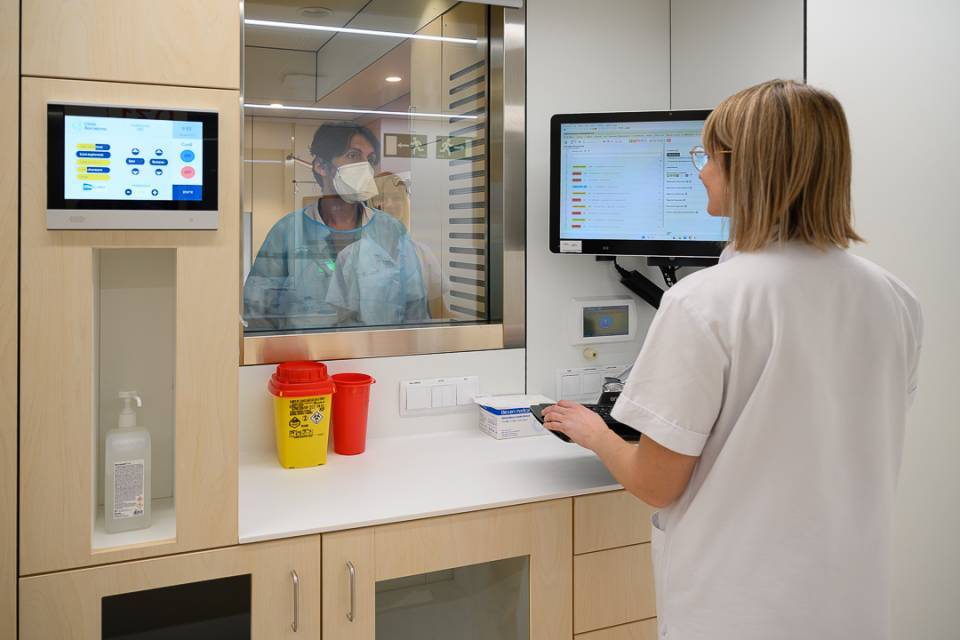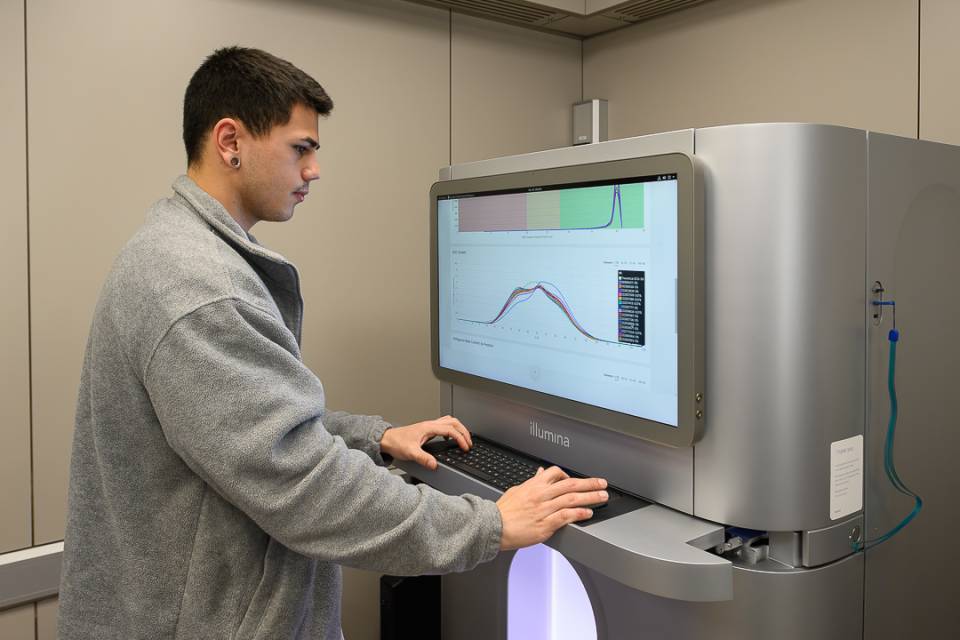Members of the Pulmonology and Respiratory Allergy Service at the Hospital Clínic de Barcelona carried out a study that highlights the importance of Intermediate Respiratory Intensive Care Units (IRICUs) during the COVID-19 pandemic. The aim was to take the load off Intensive Care Units (ICUs) with a high demand for beds due to the number of patients requiring emergency care, with acute respiratory failure. The objective was to reduce the length of stay of patients in IUCs and their morality, as well as to minimize the risk of the virus spreading among medical staff.
The Hospital Clínic, which has 850 hospital beds and 44 ICU beds for different medical and surgical specialties, had to transform and redesign two conventional wards (A and B), to turn them into IRICUs and devote them exclusively to critically ill COVID-19 patients. Ward A with 16 beds and ward B with 10. Each room has its own private bathroom, a window to monitor patients, oxygen and air supply, an electrocardiograph machine, a portable ultrasound machine, non-invasive mechanical ventilation (NIMV), high-flow nasal cannula (HFNC), and cardiopulmonary resuscitation (CPR).
Following international recommendations, it was ensured that each unit had at least one pulmonologist and one nurse with expertise in critical care. Therefore, in each ward there was a team made up of pulmonologists, doctors from other specialties, nurses and physiotherapists. With regard to the medication, since insufficient scientific evidence was available, most medication was prescribed as recommended: hydroxychloroquine and systemic corticosteroids (to reduce inflammation and pain). Moreover, of the total number of patients admitted to the IRICUs, 33 required treatment with a high-flow nasal cannula (HFNC), 15 required mechanical ventilation, and 42 needed a tracheostomy. In 74% of the latter, the cannula was eventually removed.
A total of 2,238 patients were admitted to the Hospital with COVID-19 infection confirmed by PCR. Of these patients, 475 required admission to the ICUs, and 106 were admitted to the IRICUs. Most of the patients admitted were approximately 66 years old, and 72% were men with other chronic diseases (comorbidities). By order of prevalence, 54% had systemic arterial hypertension, followed by dyslipidaemia (abnormal blood lipid levels), and cardiovascular diseases. The approximate length of the stay in these units was seven days. The IRICUs allowed many patients to recover successfully, since 70% of those admitted to IRICUs were later transferred to COVID-19 wards. The 16% who did not improve were taken to ICUs, and unfortunately 13% of the patients died whilst in the IRICU.
The results show that IRICUs are a viable alternative for increasing the availability of ICU beds and maintaining high quality medical care. IRICUs are a valuable resource for both large and small hospitals, and can also be implemented in hospitals where they are not yet available. Therefore, the results of this study show the importance of IRICUs in this health crisis and allow us to consider organizational changes within the healthcare system, in order to manage the current and any future pandemics.




